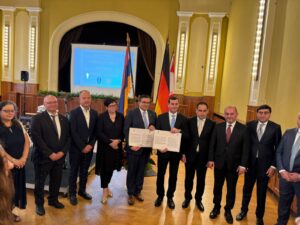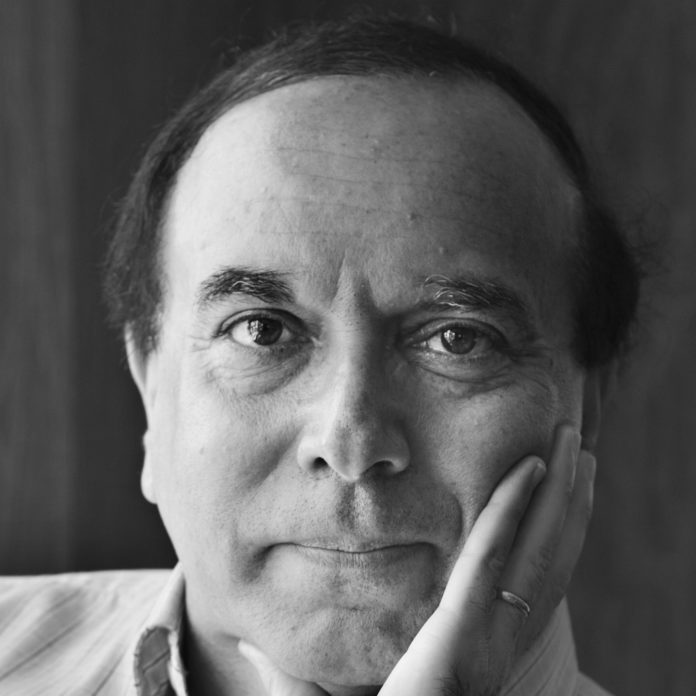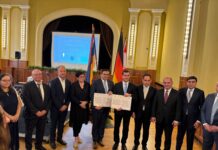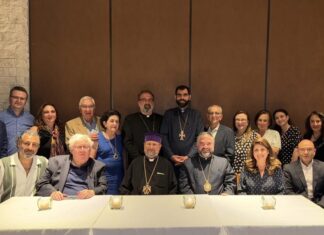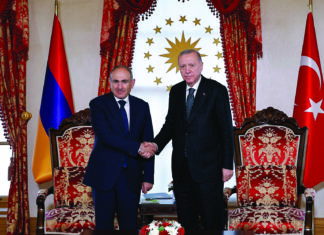By Raffi Bedrosyan
Ever since the last Armenian Patriarch Mesrob Mutafyan fell ill with dementia but continued to live in a vegetative state in 2008, the seat of the Istanbul Patriarchate has been vacant. Archbishop Aram Atesyan, who got himself appointed as Acting Patriarch, devised several arrangements with the help of the Turkish government to delay the election of a new Patriarch and remained in power for the past 11 years. Patriarch Mutafyan passed away in March 2019 and now no more legal and illegal loopholes are left to avoid the Patriarchal election.
The Turkish government finally relented to have the Patriarchal election take place in December 2019, but also presented a further obstacle against a fair and democratic election process. It imposed a condition that ‘the only eligible candidates would have to be clergy in the employ of the Istanbul Armenian Patriarchate’, thereby eliminating at least ten other potential candidates who could have been eligible, based on the historically legitimate condition of eligibility applied in previous Patriarchal elections, which was to be born into an Armenian family from Turkey. It should be noted that two of the previously elected Istanbul Patriarchs were clergymen born in Turkey but serving the Armenian Church outside Turkey and not in the Istanbul Patriarchate.
The Electoral Commission of Istanbul Armenians, selected from Istanbul Armenian community leaders, charitable foundation directors and some clergy, assembled to decide whether to object to the Turkish government about the imposed eligibility condition, but after a very short debate and a few resignations of objectors, it conveniently decided to comply with the government condition and proceed to the election. Therefore, instead of having a healthy debate and new approaches on how to run the Patriarchate with worthy candidates from inside and outside Istanbul, the December election will be between two Istanbul Armenian clergymen, Archbishop Atesyan, the Acting Patriarch until recently, and Archbishop Mashalyan, newly elected as the caretaker clergyman to oversee the election.
Based on their past performances, both men appear to be completely subservient to the Turkish government, convinced that the best and only way to conduct the Patriarchate affairs is to act exactly as the state demands, without ever rocking the boat. This may perhaps be acceptable as a tactic of survival, but what is even less acceptable is how these candidates act as subservient to the Istanbul Armenian charitable foundation leaders. The Patriarchate has the right to exert moral authority over the charitable foundations. Instead, the charitable foundation leaders, who are supposed to run the affairs of the Armenian churches, schools and hospitals on behalf of the Armenian community, conduct themselves as the head of individual empires, not accountable to anyone. Some charitable foundations are quite wealthy as they have substantial revenues and income from significant real estate holdings, while others are only reliant on individual donations or fundraising dinners. The “haves” are supposed to help the “have-nots,” but this can only be done by having a strong and influential Patriarch, arbitrating among the charitable foundations and distributing the wealth for the common good of the entire community. But at present, the directors of the wealthy foundations keep the revenues to themselves and spend it as they see it fit. Although they are supposed to be elected, the Turkish government has not allowed elections for Armenian charitable foundations for many years, and these people just rule their empires, with no accountability. The director of Holy Trinity Church (Surp Yerrortutyun), which oversees numerous other churches and schools in Pera, kept on ruling for 39 years until he passed away recently, completely wasting the potential of the historic Tokatliyan Hotel which his foundations owns, renting it cheaply to his friends and associates. The director of the Holy Saviour Hospital (Surp Prgitch), sees himself as the spokesperson of the entire Armenian community and makes irresponsible statements to the Turkish media, as he did recently, saying that students at highly prestigious Armenian Getronagan School are being raised as “militants.”
One critical issue that the Patriarchate needs to address but has not done until now is the reality of the hidden Armenians, living in different regions of Turkey outside Istanbul. The Islamized hidden Armenians have started to return to their Armenian roots in recent years. Against all odds, risks and consequences, they seek an Armenian identity. At present, the Armenian Patriarchate, or rather the Acting Patriarch, does not recognize them as Armenians until they get baptized and become Christian. But the conditions for baptism are so onerous that few hidden Armenians choose to go through with the process. Moreover, the hidden Armenians are also prevented from being baptized elsewhere in Armenia or Europe, as we experienced during Project Rebirth trips to Armenia with several groups of hidden Armenians. It is my humble opinion that any hidden Armenian who wishes to return to Armenian roots, language and culture, has the right to do so, and should not be prevented from doing so. Religion should be considered as a personal choice that comes later.
